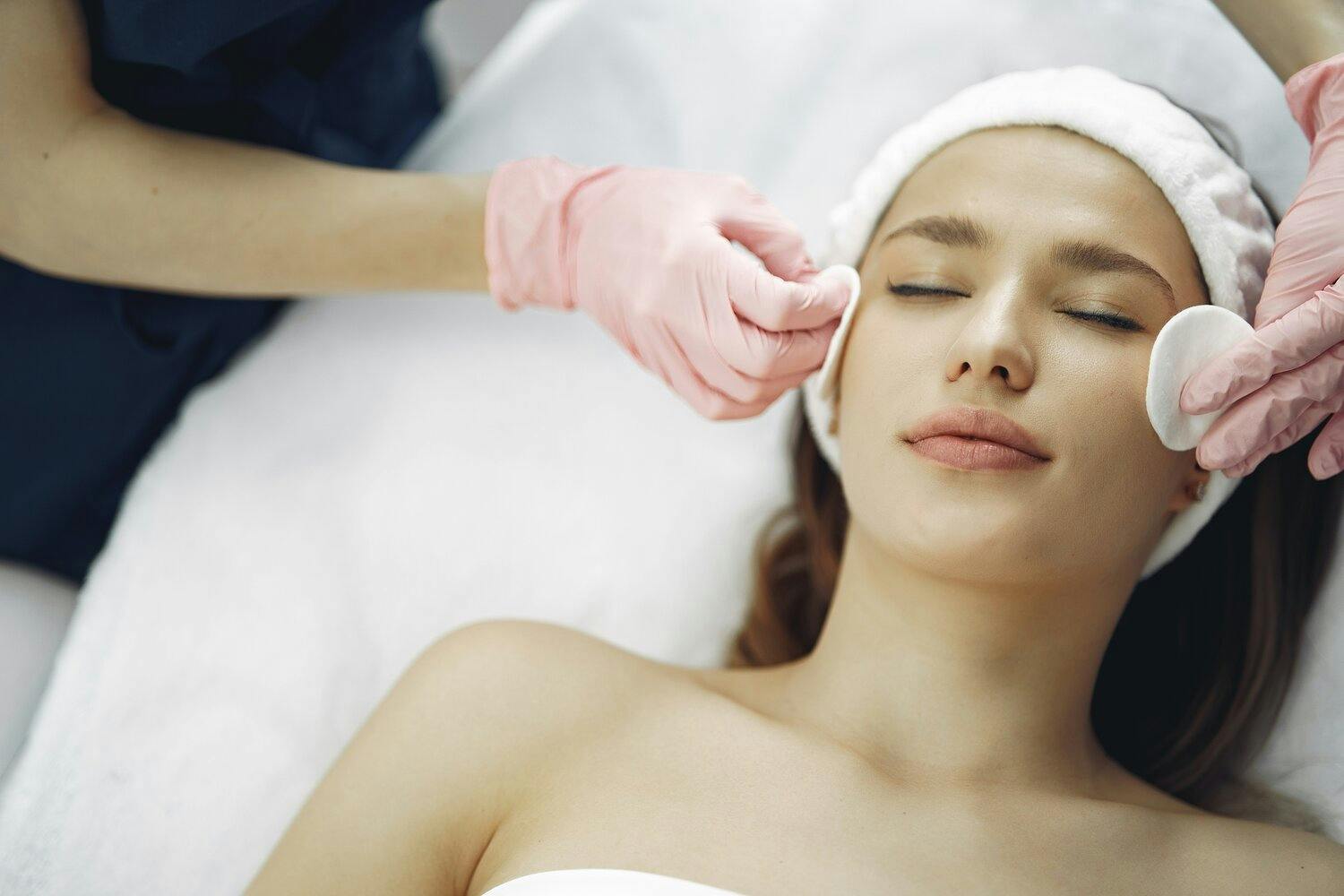Best vitamins & minerals for skin
Dec 8, 2022

Whether you want to improve your diet or ramp up your skincare routine, knowing the best vitamins for skin can lead to a vast improvement in your overall skin health. Not to mention your confidence. Taking in or applying enough of the right minerals or vitamins can in fact have a hugely positive effect on your body’s largest organ. If you want to know which vitamin is good for a skin condition you’d like to address, then read on. Detailed in this guide is why it’s so important to look after our skin, as well as a few warning signs to look out for. We also cover eight of the key vitamins and minerals for skin – from A and B-Complex right through to zinc.
Why skin health is important
Though you may not have considered it before, your skin is actually your body’s largest organ. It’s also the biggest constituent of the integumentary system, which also includes your nails, hair, oil and sweat glands. Protection is one of the main functions of your skin. It acts as a barrier between the rest of your body and factors like temperature, chemicals and bacteria. All of these can have a negative impact on the human body.Your skin also retains moisture to prevent dehydration. In addition, the nerve endings found within your skin act as a warning system when the body is too cold or overly hot. They may also trigger pain, which in itself can be a warning that something’s not right. With all this in mind, is it any wonder that we need to look after our skin? Keeping it clean and hydrated can ensure the correct pore size is maintained, and avoid the oil glands being stimulated into overproduction. Nourishing your skin can also improve its health and appearance, reducing the visible signs of ageing while ensuring a radiant glow.
Signs of vitamin and mineral deficiencies on skin
Your skin may tell you when all isn’t well. If you’re short of minerals and vitamins, the look and feel of your skin may alter. Here are three of the key signs to look out for.
Pale skin
Your skin may appear paler in colour due to a deficiency in a particular vitamin or mineral. Typical culprits include B vitamins, folate, iron or zinc. Thinning hair can also indicate these deficiencies, or a lack of vitamin A.
Dermatitis
If your skin is dry and tight, redder than usual or even itchy, these can be signs of dermatitis. A zinc or fatty acid deficiency may be the cause. When this occurs in reaction to sunlight, a niacin deficiency is often indicated.
Slow healing
Skin that’s slow to heal from minor scrapes or cuts may be telling you that you need more zinc or vitamin C. White lines or marks on the nails can also indicate a zinc deficiency.
Best vitamins & minerals for skin
Vitamin A
Vitamin A for skin is vital. It can ensure the top two layers of your skin are in good health, namely the dermis and epidermis. Taking in and applying enough vitamin A to the skin can accelerate healing, prevent breakouts, improve hydration and ensure a healthy glow. Using vitamin A can help to balance pigmentation within the skin. It can also have a plumping effect, reducing the appearance of wrinkles.
Vitamin B-Complex
The vitamin B-Complex can be very nourishing for skin. This is true for both when it forms part of the diet, and when it’s applied directly to the epidermis. Vitamins B2, B3, B5 and B7 in particular can assist in the production of healthy new skin cells, which can reduce the visible signs of ageing. Vitamin B may also be referred to as niacinamide or nicotinamide.
Vitamin C
So why might we need vitamin C for skin? Vitamin C is one of the most vital skin vitamins of all, as collagen cannot be produced without it. Collagen maintains skin elasticity, and is key in fighting fine lines and wrinkles.Vitamin C can also help to tone and balance the skin, reducing discoloration such as dark circles.
Vitamin D
The sunshine vitamin is essential for skin health because vitamin D for skin supports the immune system of the body’s biggest organ. This vitamin also plays a major role in enabling the growth of new skin cells and can encourage faster repair. Vitamin D is a formidable weapon against environmental free radicals. These can contribute to premature ageing.
Vitamin E
Vitamin E for skin is key in the fight against inflammation. This powerful anti-inflammatory can help skin to heal more quickly and effectively following over-exposure to the sun. Vitamin E is a popular ingredient in night creams, for example, as when topically applied it can also have an anti-ageing effect.
Vitamin K
Though perhaps a lesser-known skin vitamin than the likes of A, B-Complex and C, vitamin K can help to maintain healthy skin in several ways. Vitamin K can stimulate collagen renewal, thus ensuring plumper, more youthful-looking skin.Another benefit of vitamin K is the fact that it can help to balance skin discolouration. Blemishes, under-eye circles and age spots may also be banished with the help of vitamin K. This wonder vitamin can hydrate dry skin, ensuring it provides an effective barrier against environmental skin stressors.
Selenium
Selenium is also perhaps not as well known as other vitamins and minerals, but it can have a number of beneficial effects for the body and skin. This mineral can help to ensure firm, supple skin while protecting against UV rays, free radicals and inflammation. Some of the skin’s antioxidant enzymes in fact require selenium to work properly, protecting skin from the damage that can be caused by sunlight.
Zinc
Zinc is one of the most important minerals of all. This mineral is an antioxidant, and can promote skin healing. Zinc is also a known anti-inflammatory, and thus the substance is often added to products used to treat acne for this reason. As well as healing scar tissue, zinc is a substance required by the body for protein synthesis. Plus, it can help to protect your skin from harmful UV rays. Take charge of your skin’s health with a Vitamin Glow Facial, or a Vitamin IV Drip with Secret Spa. [button link="https://book.secretspa.co.uk/categories"]Book treatments[/button]
Book our
experts today
Related Articles
What is microdermabrasion and what are the benefits?
Oct 9, 2020
How to care for dry lips in winter
Jan 31, 2022
Facials 101: How often to have a facial, aftercare advice and benefits
May 12, 2020
What is dermaplaning and should you try it?
May 18, 2021
10 best superfoods for glowing skin
Feb 25, 2021
How to revive hangover skin
Aug 6, 2021






